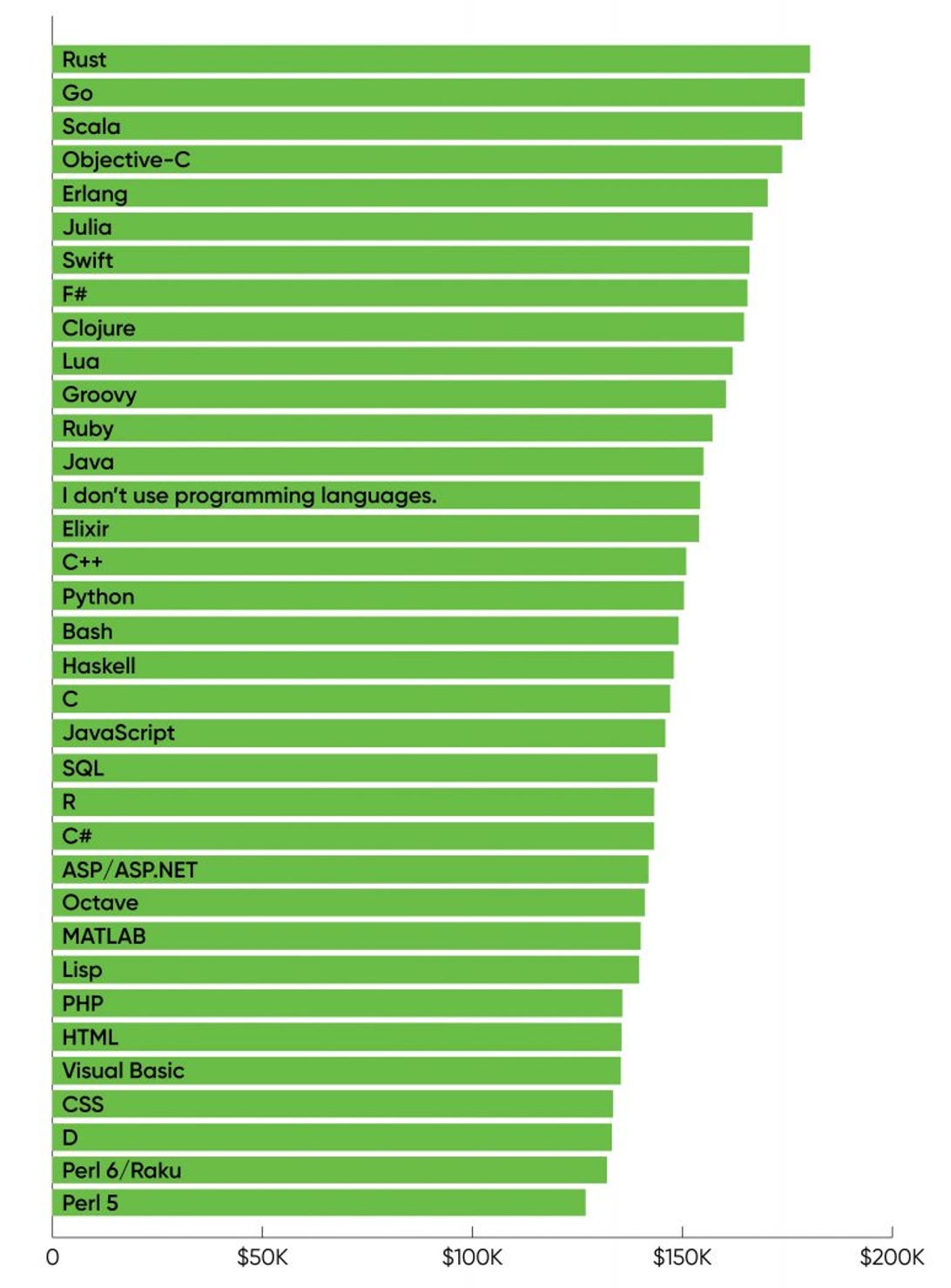Developer trends, zero-day risks, 5G speeds, and more: Tech research roundup
From popular programming languages to the rise of ransomware-as-a-service operations and onto smartphone sales, here are the charts that matter from the past month in tech news.
Developer jobs and programming languages: What's hot and what's next
Let's start with our special feature on software development. Research shows developers who work with niche programming languages are likely to take home higher average salaries, largely owing to the fact that those skills are in such short supply.
SEE: Developer jobs and programming languages: What's hot and what's next
JavaScript reigns: For most developers, programming is web programming
JavaScript continues to reign as the most widely used and in-demand programming language globally. Stack Overflow's 2021 survey saw JavaScript crowned the most common language for the ninth consecutive year: "For most developers, programming is web programming."
SEE: Developer jobs and programming languages: What's hot and what's next
Worried your developers will quit? Here's how to keep them happy at work
A survey by Stack Overflow found that 90% of developers believe it's important for them to be happy at work. When asked what was most likely to make them happy at work, 210 of the 350 developers quizzed (60%) cited salary or paycheck.
SEE: Worried your developers will quit? These are the 5 things that coders say keep them happy at work
Google: We're spotting more Chrome browser zero-day flaws in the wild
According to Google Project Zero's zero-day tracker, there were 25 browser zero-days patched last year, of which 14 were for Chrome, six were for Safari's WebKit engine, and four were for Internet Explorer. In 2020, there were just 14 browser zero-day flaws.
SEE: Google: We're spotting more Chrome browser zero-day flaws in the wild. Here's why
Partnerships emerge in ransomware-as-a-service operations
KELA published a report on ransomware operators' overall trends and movements over 2021. The cybersecurity firm says that the number of major organisations tracked as ransomware victims increased from 1,460 to 2,860, with many appearing on ransomware leak sites.
SEE: Franchises, partnerships emerge in ransomware-as-a-service operations
TeaBot Android Banking Trojan continues its global conquest
The TeaBot Remote Access Trojan (RAT) has been upgraded, leading to a huge increase in both targets and spread worldwide. Risk management firm Cleafy said TeaBot now targets over 400 applications, pivoting from an earlier focus on "smishing" to more advanced tactics.
SEE: TeaBot Android Banking Trojan continues its global conquest with new upgrades
How cloud services become weapons in Russia-Ukraine cyber conflict
Research from Aqua Security's Team Nautilus showed cloud technologies are playing a role in the digital side of the conflict. The researchers looked for names, guides, and tools promoted for use in cyberattacks. Roughly 40% of these public repositories were related to denial-of-service activity.
SEE: How cloud services become weapons in Russia-Ukraine cyber conflict
Counterpoint: Motorola becomes number three smartphone maker in US
The latest measurement of smartphone sales in the US shows that Motorola became the third-largest brand in the US during the 2021 calendar year. According to Counterpoint's charts, this climb puts it behind only Apple and Samsung, with a 10% share of the market.
SEE: Counterpoint: Motorola becomes number three smartphone maker in US
Opensignal's C-Band 5G analysis shows big impact for Verizon customers
Opensignal has published the findings of its first major report on US mobile network performance since both AT&T and Verizon Wireless launched their first C-Band service areas. The research shows Verizon Wireless customers were the clear winners of the initial C-Band rollout.
SEE: Opensignal's first C-Band 5G analysis shows big impact for Verizon customers
Smaller businesses are making bigger investments in the cloud
Finally, cloud spending by small businesses (SMBs) has shot up significantly, according to Flexera's State of the Cloud Report. As many as 53% of SMBs surveyed in the latest report are spending more than $1.2 million annually on the cloud. That's up from 38% last year.
SEE: Report: SMBs are making serious investments in the cloud
